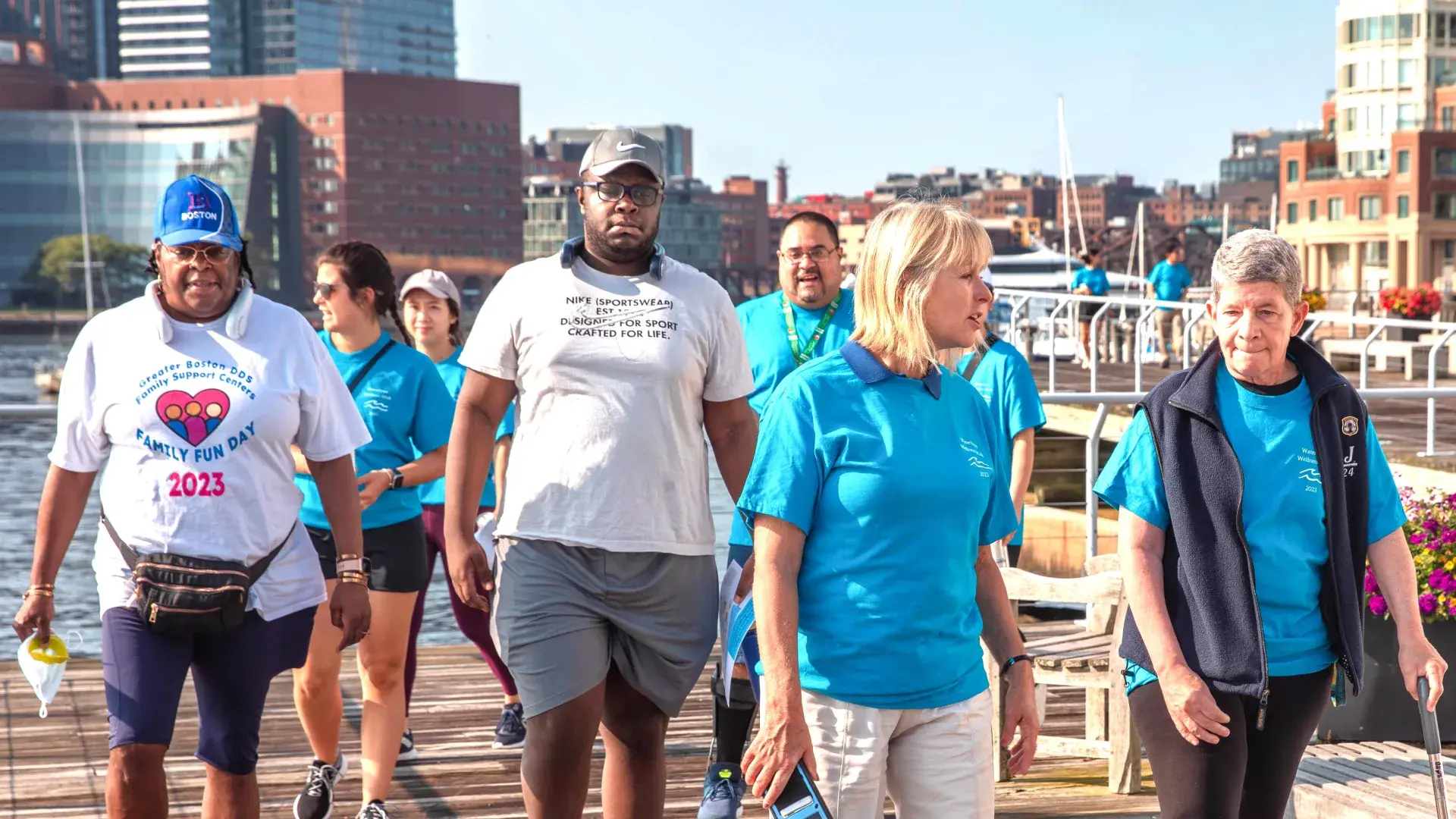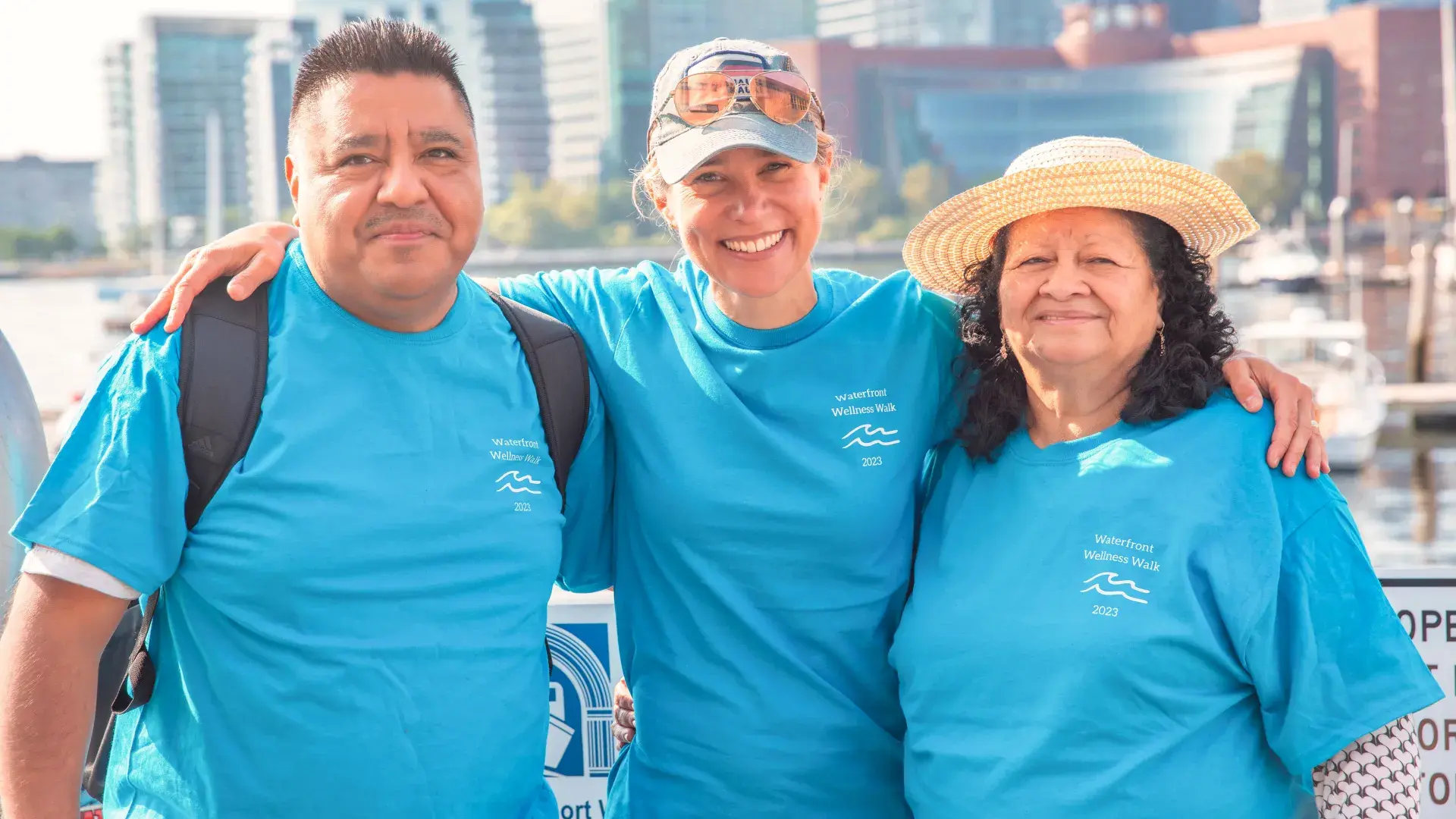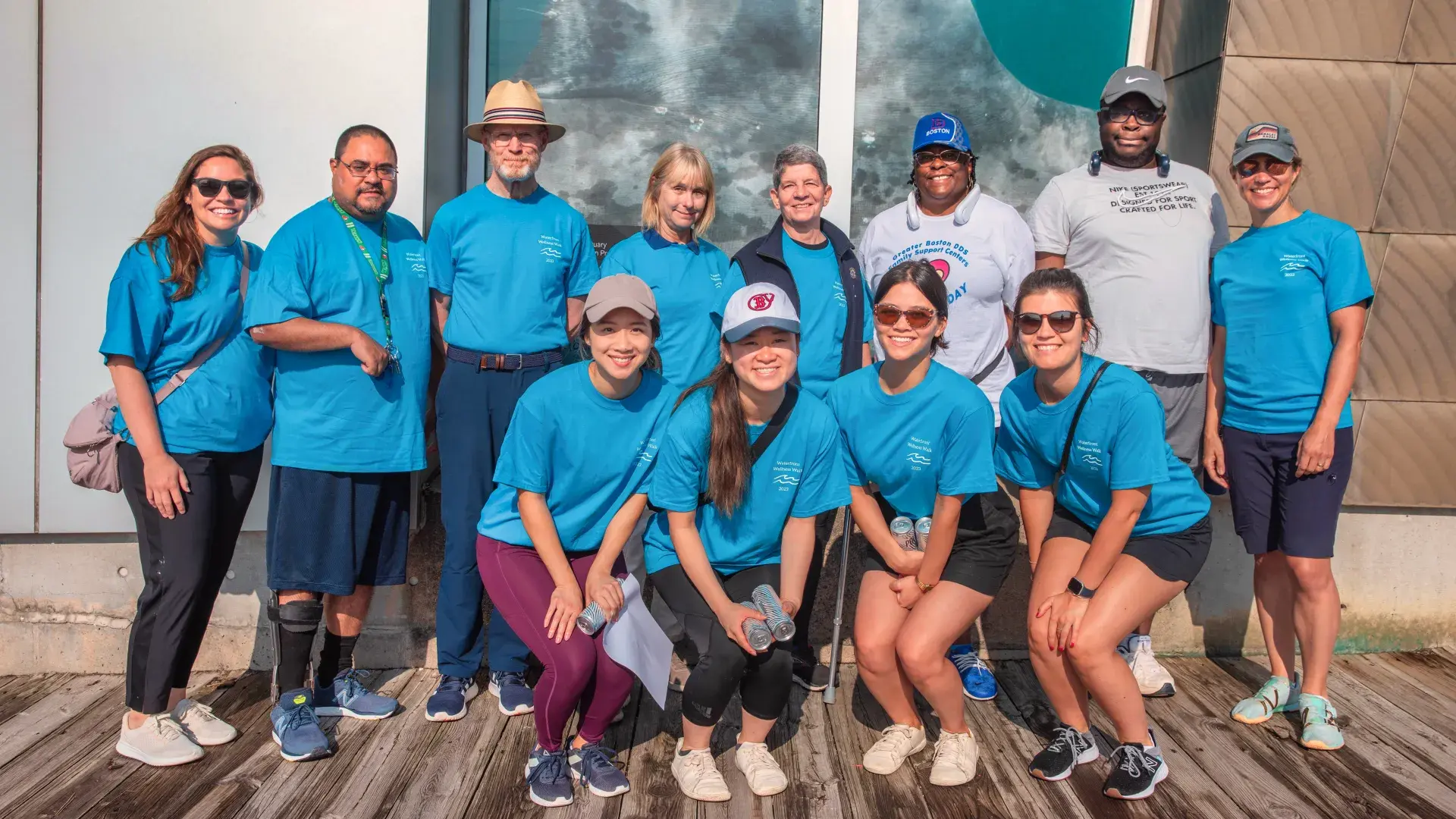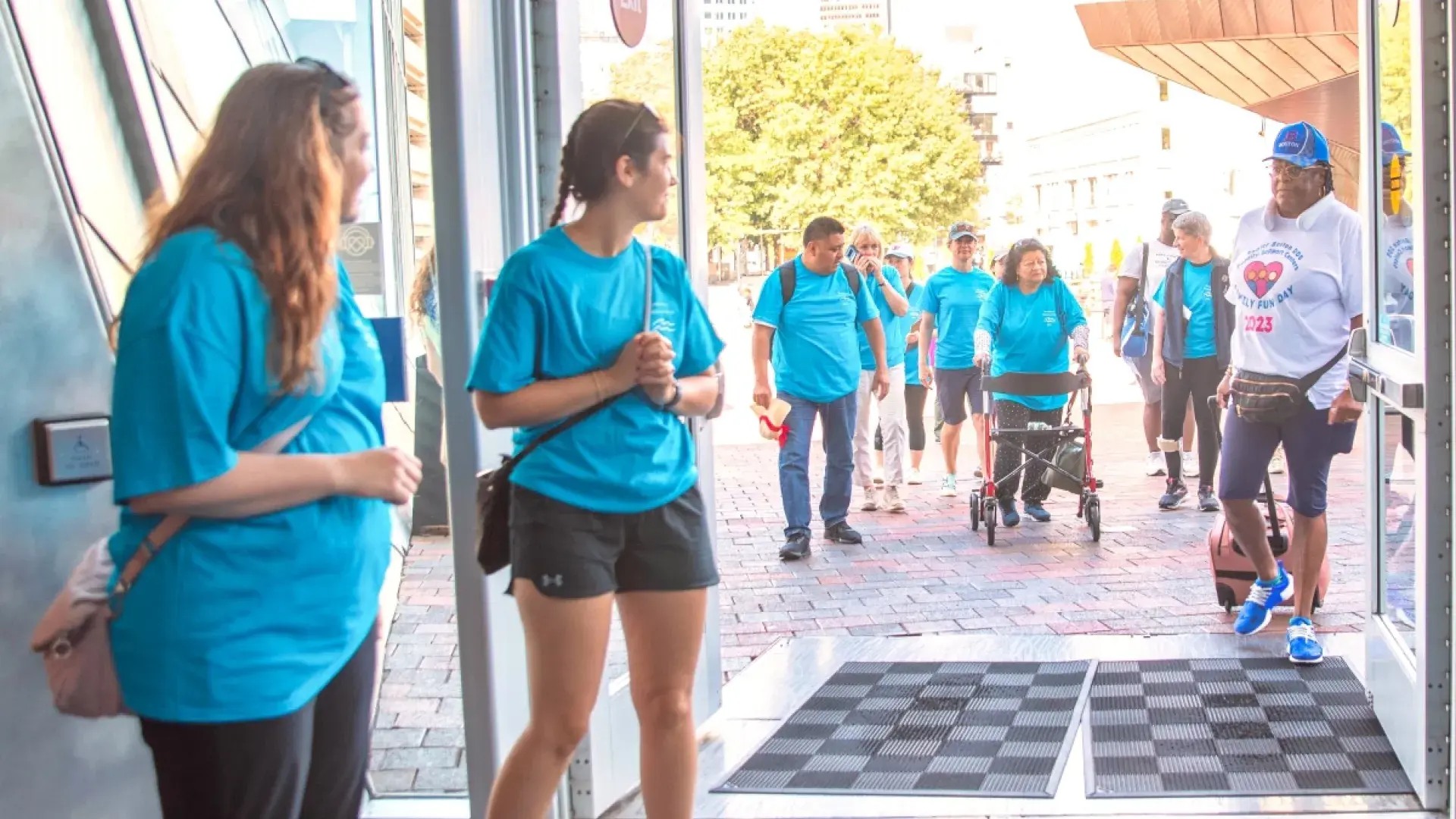
Tedy’s Team Center of Excellence in Stroke Recovery holds Wellness Walk for stroke survivors, aims to help in ways not possible within traditional healthcare system.
Under a cloudless summer sky, they walked. And talked. And took part in a community.
On the surface, it might not seem that significant, but for the more than dozen stroke survivors and their families, the Waterfront Wellness Walk: Strides for Stroke Awareness and Prevention was everything.
The first event coordinated by the Tedy’s Team Center of Excellence in Stroke Recovery at the MGH Institute of Health Professions, the walk gave participants the chance to improve their fitness, socialize, and enjoy the Boston waterfront and the New England Aquarium.
Stroke survivor Lisa A. Sims was there, accompanied by her adult son, Jevon Okundaye.
“As a stroke survivor, I look for anything that's going to have me connected with the stroke community because it's always a good time,” said Sims, who suffered her stroke 11 years ago. “You're with like-minded people and you feel like you have the same values here, and you're doing things outside.”
For Tedy’s Team, the event was about putting research findings into practice.
“We know that community and participation leads to better quality of life, better physical outcomes, and better mental health for people with stroke,” said Dr. Kim Erler, Director of the Tedy’s Team center. “We also know that physical activity and having a care partner with you also helps with outcome. So, we were able to take what we know from the literature about the importance of community participation, the importance of physical health, the importance of social support, and bring it all together and translate it into an actual event for people with strokes.”
The Coalition for a Resilient and Inclusive Waterfront also teamed with the IHP and the aquarium to make this wellness walk possible for clients who receive services at the Institute’s Sanders IMPACT Practice Center. With faculty and students providing support and encouragement, the walk began at the aquarium, proceeded along Central Wharf, then ended back at the aquarium where participants received free admission.
Although stroke survivors typically take less than half the daily steps of their unaffected peers, that wasn’t the case on this day. Survivor Steve Parnell, who suffered his stroke in January of 2018, couldn’t have been more pleased.
“I thought it was so important to walk only because it helps your brain get better,” said Parnell, who has been receiving care at the IHP’s Aphasia Center for two and a half years. “For 43 days, I couldn't even tell you my first word, but to be with those people, to be at the aquarium, to see the penguins and everything else like that, It was something you couldn't even imagine. For me, it was critical to get involved.”



